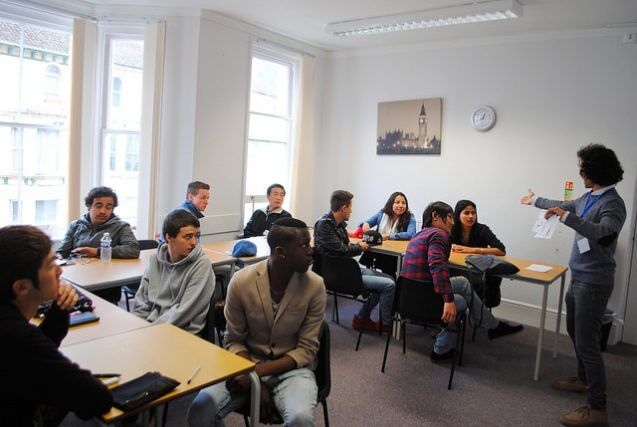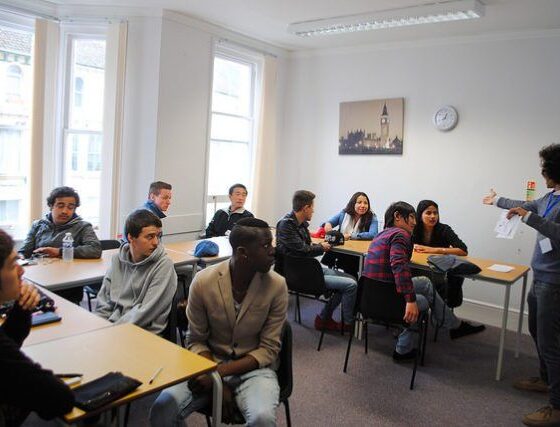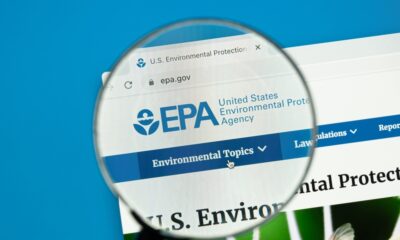

Environment
The State of Sustainability In Tertiary Education
Today marks the release of the second annual report on sustainability in tertiary education by the Environmental Association for Universities and Colleges (EAUC), National Union of Students (NUS), University and College Union (UCU), Association of Colleges (AoC) and the College Development Network.
The report is based on survey responses from 512 staff involved in sustainability in universities and colleges. The survey set out to identify how further and higher education institutions are responding to environmental sustainability and social responsibility challenges, as well as how staff perceive their institution’s efforts. As the second year for the report we can track perceptions and trends across tertiary education.
Key findings:
· Still only a quarter of respondents overall report that sustainability is a strategic priority.
· Senior leaders such as Vice Chancellors and Principals are seen as the biggest potential for to help address sustainability yet lack of senior management commitment is seen as the second biggest barrier, after finances.
· University staff are becoming more positive in the likelihood of achieving carbon reduction targets at their institutions, with a third saying they are unlikely or very unlikely to meet targets, compared with two fifths in 2015.
· Just 16% of overall respondents rate performance on ethical investments as ‘very good’ or ‘good’ – this is the same as 2015.
· Only 1% believe that their institution is achieving 10 out of 10 in terms of their action on sustainability
· Just over half of HE sustainability staff respondents report that their institution’s graduate attributes include sustainability related attributes.
· A lack of financial and staff resources are seen as the biggest barriers to acting for sustainability with support from the highest levels seen as the most important way of overcoming these barriers. With half of respondents from FE, working in a formal/lead sustainability role, spend just 10% of their time working on sustainability.
· Concerns over availability of financial resources for the 2016-17 academic year remain with respondents more commonly reporting an expected decrease than increase in budget.
This report suggests that sector progress is mixed, so it falls on all of us to find the language and means to make sustainability a leadership and governance matter.
Iain Patton, CEO, EAUC, said: “With the Sustainable Development Goals in place and the COP21 Climate Agreement globally ratified, the sustainability odds have got much higher since last year’s survey. This report suggests that sector progress is mixed, so it falls on all of us to find the language and means to make sustainability a leadership and governance matter.”
Robbie Young, Vice President Society and Citizenship, NUS, said: “It is a real concern to see that a third of environment managers think they will miss their carbon targets. Politicians and vice chancellors urgently need to come up with a plan, and resources, or else there is no way our universities and colleges will deliver on the Paris climate agreement. This report also reinforces our concerns on ethical investments, which is something we should all be ashamed of. Our students’ money is being invested into fossil fuels against their wishes, and this new data hardens our resolve to make our Emissions Impossible campaign a success.”
Ian Munro, Regional Director, AoC, said, “This survey is very important as it enables us gain a better understanding of the perceptions of staff in colleges and universities regarding the organisational commitment to sustainability. What is clear from the results and feedback is that colleges and their staff continue to promote and champion this work and they do that to ensure that their students are not only engaged in this agenda through study, but well prepared to enter their chosen careers with an understanding of the wider of sustainability and environmental issues and how they can influence the future.”
Garry Cameron, Delivery Lead, CDN, said: “Colleges in Scotland continue to reinforce and consolidate progress in addressing energy and sustainability management through new campus construction. The CDN Estates and Facilities Network have an appropriate and relevant focus on climate change reporting necessitated by legislation. While responsibility for completion of reports is likely to sit with Estates and Facilities staff information will need to be provided by many college departments to work together to achieve a corporate goal. This reinforces the concept of collective responsibility for sustainability. CDN continues to support sustainability management in Food and Drink Manufacturing through relevant qualifications and curriculum pathways. A genuine opportunity exists to embed sustainability in all aspects of learning and teaching with the refresh of professional standards for college lecturers due 2017-18.”
The EAUC, UCU, AoC and NUS are amongst the collective voice of the world’s universities, colleges and students that are part of the Global Alliance. The Global Alliance brings a collective voice of tertiary and higher education sustainability and student networks and associations representing over 10,000 universities and colleges worldwide.
To view the full report on Sustainability in Education, please visit www.eauc.org.uk.


 Environment12 months ago
Environment12 months agoAre Polymer Banknotes: an Eco-Friendly Trend or a Groundswell?

 Features11 months ago
Features11 months agoEco-Friendly Cryptocurrencies: Sustainable Investment Choices

 Energy11 months ago
Energy11 months agoThe Growing Role of Solar Panels in Ireland’s Energy Future

 Energy10 months ago
Energy10 months agoGrowth of Solar Power in Dublin: A Sustainable Revolution




























